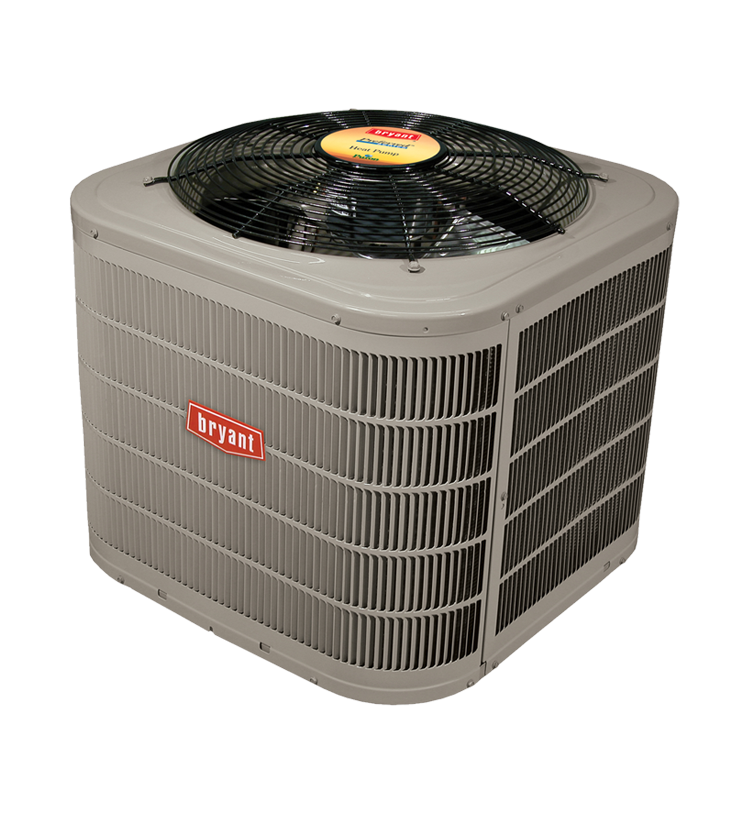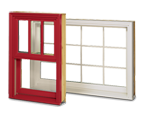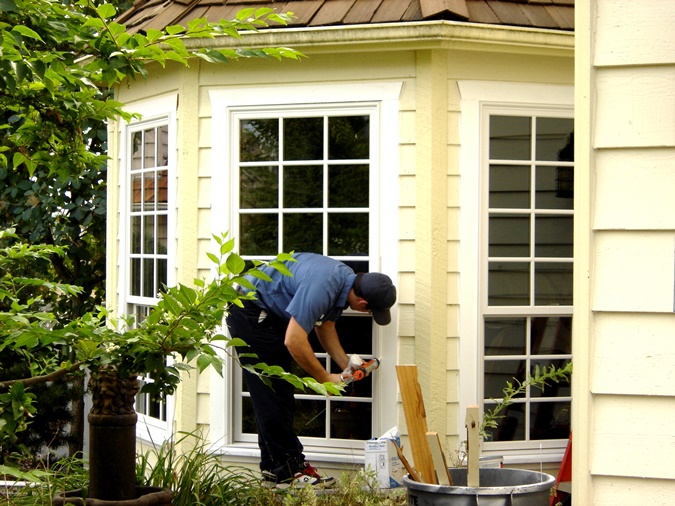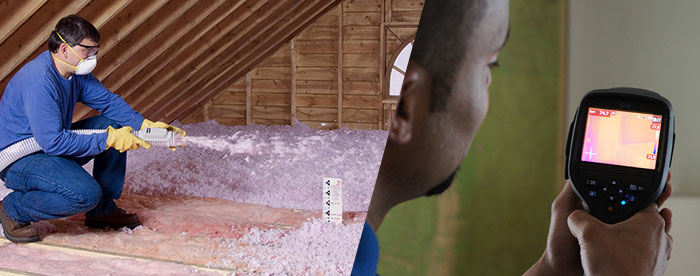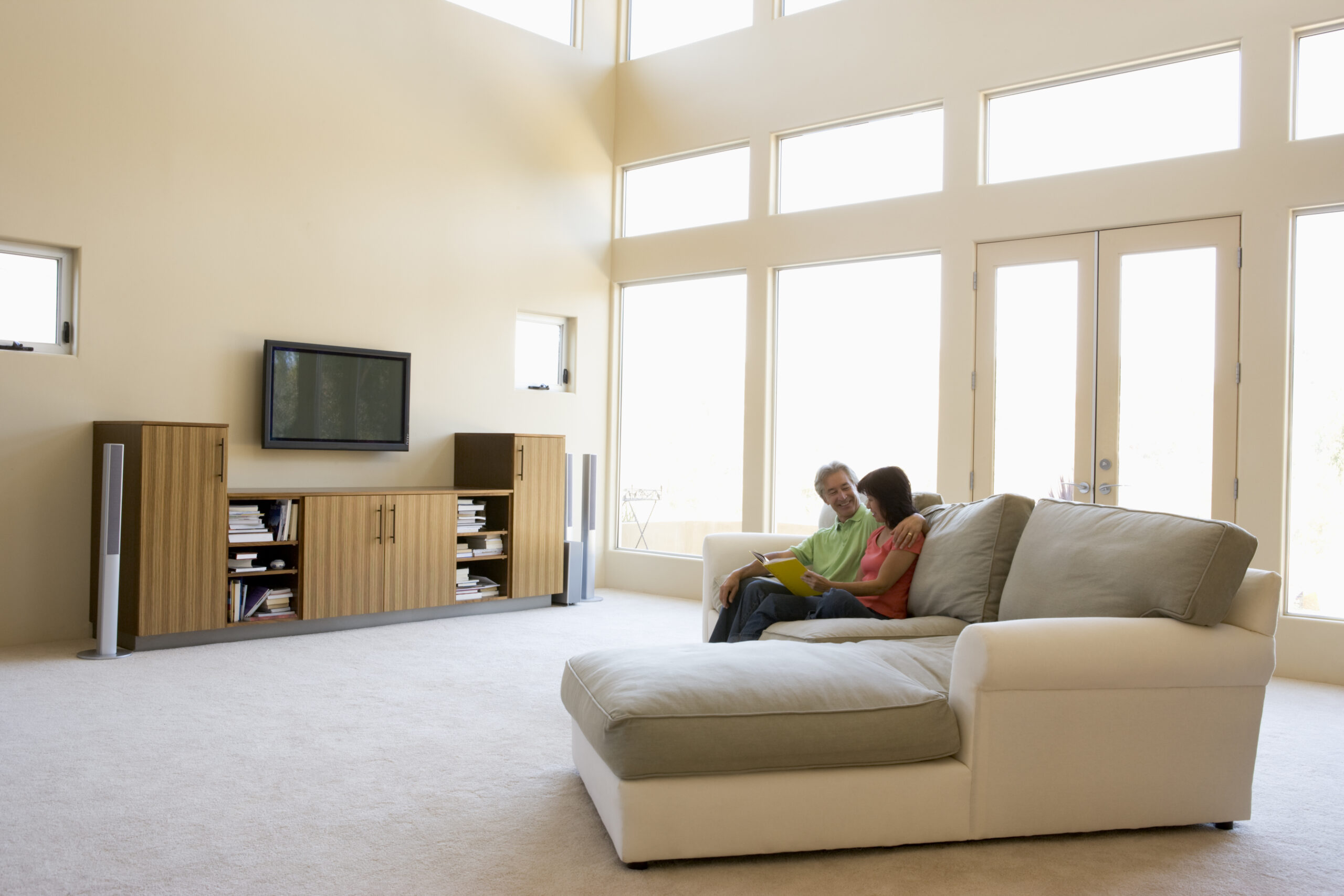
Hot weather energy savers?
Here in the Northwest we often think of energy saving only in terms of winter heating costs.
Posted On: July 6, 2012
Whether you have a central cooling system such as a heat pump or air conditioning, or just a single fan, there are plenty of ways to save energy, and money, in the summer. Here are some easy ones:
- Keep heat out of the house to begin with. The hotter you make the house, the harder your cooling equipment has to work.
- Don’t add heat yourself. Skip using the oven; choose the BBQ or even a microwave instead. Avoid using the drying function on your dishwasher.
- If you have aluminum windows or single paned windows, consider upgrading to insulated vinyl windows with Low E (energy efficient) glass. This will keep significant heat out of your home.
- Improve insulation in your attic. Having adequate attic insulation helps as much in keeping it cool in the summer as keeping heat in during winter.
- Pull down shades, close windows and blinds where the warmer afternoon sun comes in. Add shades or blinds to French doors or sliding glass doors. Open windows at night to let the house cool down as much as it can overnight.
- Ensure your cooling system is running at maximum efficiency by starting your AC early in the day. Don’t wait for heat to build up in the house. Like city vs highway mileage for your car, the mileage or in this case energy use is worse with stop and go airflow.
- Move air inside your house. Add a low cost ceiling or attic fan and make sure it’s installed correctly. See why below.
- Everyone can save by reducing use of higher cost electricity during the peak hot times of day. Turn off and/or unplug unused appliances, or use appliances at night when rates are lower.
- Service cooling equipment annually. If you have a central heating & cooling system such as a heat pump, central air conditioning, or ductless heat pump, you’ve likely made an energy efficient cooling choice. Maintenance service is important, especially for air conditioning systems that may sit idle for much of the year. You want it to work when it gets hot. Just like maintenance on your car, it will prolong the life of your expensive equipment and ensure you are getting the right “gas mileage”, or energy efficiency out of it.
The ceiling fan difference.
- You can benefit from adding ceiling fans to your house even if you have a cooling system. Just having air movement can help you feel 5 degrees cooler so you can use your cooling equipment less.
- Ceiling fans don’t actually lower the temperature in the room, they provide a breeze. To get the best from your ceiling fans make sure they are set up correctly. Make sure the blades are moving in the correct direction, rotating counter clockwise so you get a downdraft of air. They should have plenty of air circulation around them, and be positioned 7-9 feet off the floor.
- Don’t leave ceiling fans on when you aren’t home. They don’t cool the room, they just cool your skin with a breeze. So if they are running and you’re not there, they are just using electricity.
The attic fan difference.
- An attic fan can actually pull hot air out of the top of your house and reduce heat in your home by up to 15 degrees. This solution is perfect for Northwest homes that tend to have more than one floor and heat that is trapped on the top floor or attic.
- A solar attic fan is a great option as it is completely solar powered. Even in the Northwest the solar attic fan can draw enough energy from it’s compact solar panels to enable it to do a great job cooling. Plus, these units are tough and rated to withstand hurricanes as they are popular in the Southern US.
- Attic fans and solar attic fans are widely available. We advise that you consult a professional about proper installation.
For more information on Air Conditioning, AC service or energy efficient cooling products such as EnergyStar rated heat pumps, or solar attic fans, contact Washington Energy Services at 800 398 – 4663 or click our free estimate form on this email. You’ll be contacted within 24 hrs.
Related products
Suggested Reading
- 2016
- AC
- AC Installation
- AC Units
- AFUE
- air conditioing
- air conditioner
- air conditioning
- air conditioning maintenance
- air conditioning service
- air conditioning tune-up
- air duct
- air duct cleaning
- air handlers
- air pollution
- Air Purification System
- air purifier
- Air Sealing
- angie's list
- award
- basement Finishing
- Bathroom remodel
- BBB
- BBB Accredited Business
- before and after
- Best air conditioner
- best filters
- best generator
- best locks
- best water heater
- best window install
- boilers
- bryant
- Bryant AC
- bryant furnace
- bryant heat pump
- christmas lights
- clean air
- clothes drive
- Clothes For Kids
- coat drive
- combi-boiler
- comfort
- community
- Construction
- contractor
- contractors
- Cooling
- Cooling equipment
- Coronavirus Protection
- custom
- daikin
- deals
- discounts
- DIY
- Donation
- Donations
- door hardware
- door installation
- door replacement
- Door Transformations
- doors
- drafty home
- drain cleaning
- Duct Cleaning
- Duct Cleaning Services
- ductless
- Ductless heat pump
- ductless heat pump. mini-split
- Ductless heat pumps
- ductless heating system
- ductless heating systems
- ductless installation
- Ducts
- earth day
- eco friendly
- EER
- election
- electrical inspection
- emergency
- energy
- energy conservation
- energy efficiency
- energy efficiency rebates
- energy efficient AC
- energy efficient air conditioner
- energy efficient home
- energy efficient hvac
- energy efficient HVAC Systems
- energy efficient windows
- energy myths
- energy saving
- energy saving home products
- energy star
- energy tax credit
- environmentally friendly
- exterior doors
- fall
- fall weather
- fiber cement
- fiberglass doors
- filter
- filter change
- financing options
- fireplace
- fireplace insert
- fireplace repair
- fireplace tune-up
- front door
- furnace
- furnace filters
- furnace install
- furnace maintenance
- furnace mileage
- furnace problems
- furnace replacement
- furnace service
- furnaces
- Garage door replacement
- gas fireplace
- gas fireplace inserts
- Gas Fireplace Makeover
- gas furnace
- generators
- going green
- good business practices
- green solutions
- Guardian Maintenance Club
- heat
- heat pump
- heat pump installation
- heat pump maintenance
- heat pump vs ac
- Heat Pumps
- heat pumps maintenance
- heat wave
- Heating
- Heating and Cooling equipment
- heating and cooling systems
- Heating Brands
- Heating Control
- Heating equipment
- Heating System Tuneup
- heatwave
- HEPA filter
- history
- holiday
- home
- home buyer
- home energy
- home energy efficiency
- Home energy efficiency solutions
- home exterior
- home heating
- home improvement
- Home Improvement Rebates
- home improvement repair
- home inspection
- home maintenance
- home maintenance checklist
- home maintence
- home performance
- home protection
- home repair
- home safety
- home upgrade trends
- home upgrades
- home value
- homeowners
- honeywell
- hot water
- hot water heater
- houzz
- how to
- HVAC
- HVAC Contractor
- HVAC Contractors
- hvac system
- IAQ
- indoor air quality
- infographic
- install
- install furnace
- insulation
- intellihot
- interior doors
- kids
- Kitchen face lift
- LED light
- LED lights
- light bulb
- light bulbs
- locks
- mailbag
- maintenance
- march
- membership
- mini-split
- modulating furnace
- money saving
- money savings
- navien
- new door installation
- new home
- New homeowner
- new windows
- news
- pacific northwest weather
- patio doors
- pets
- plumbing
- plumbing inspection
- power
- power outages
- precision tune up
- preventative
- Pro Tips
- Programmable Thermostat
- Programmable Thermostats
- propane
- PSE Award
- PSE Energy
- PUD
- Q & A
- Ratings
- rebates
- refund
- REME Halo
- Remodel
- remodeling hacks
- Replacing Heating System
- reputation
- Safe Home Insulation
- sale
- save energy
- Saving money
- scam
- scams
- seattle
- Seattle Weather
- SEER
- service
- services
- Siding
- Siding replacement
- sliding glass doors
- Smart Home
- Smart thermostat
- smoke
- Solar Attic Fan
- solar power
- Solar Powered Light Strand
- sound
- spring
- standby generators
- storm doors
- summer
- summer fires
- Summer heat
- Summer home
- super service 2016
- tank water heater
- Tank water heaters
- tankless tune ups
- tankless water heater
- tankless water heaters
- tax rebate
- thanksgiving
- Thermostat
- tips
- trends
- tune-up
- upgrade
- upgrade cooling
- upgrade heating
- utilities
- utility rebates
- veterans
- Washington Energy
- washington energy services
- water conservation
- Water Heater
- water heater installation
- water heater maintenance
- water heater repair
- water heaters
- water leak protection
- Wildfire Season
- wildfire smoke
- window
- window energy efficiency
- window install
- window maintence
- window remodel
- window repair
- window replacement
- windows
- winner
- winter
- zone heating
- Air Conditioning
- Air Purifiers
- Cooling
- Doors
- Ductless heat pump
- Environmental
- Fireplace
- Furnace
- Gas fireplace
- Generators
- Heat pump
- Heating
- Home improvement
- How to
- HVAC
- Indoor Air Quality
- Insulation
- News
- Plumbing
- Rebates
- Seattle
- Siding
- Smart Home
- Tank water heaters
- Tankless water heaters
- Tips to save money
- Uncategorized
- Wildfire Season
- Windows
